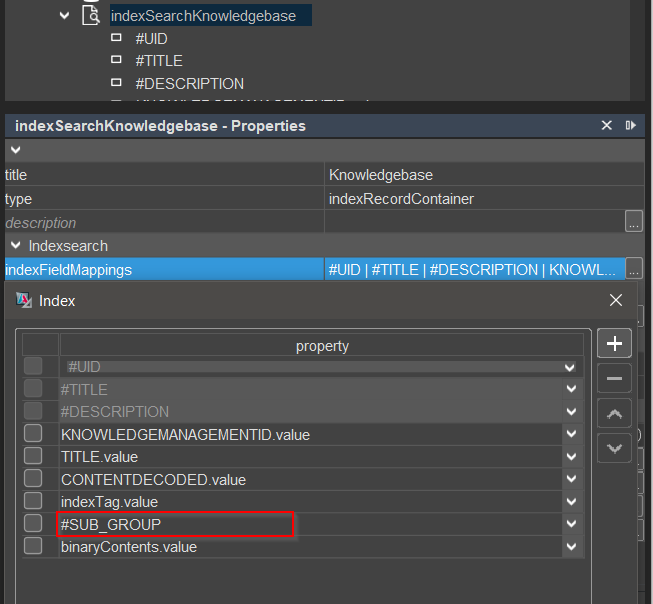2020.1 to 2020.2
1. Indexsearch: Changes to Indexing and External Solr Usage
What changed
- The index scheme has been updated, requiring a full rebuild of the index.
- Embedded mode for the index is no longer supported; an external Solr server must be used.
- Only one index group per entity is allowed; subgroups are now handled via a new feature using the system field
#SUB_GROUP.
Why it matters
- The new index scheme improves subgroup handling but requires deleting existing index files and reindexing.
- External Solr usage means the indexer runs separately from the application, improving scalability and maintainability.
- Restricting to one index group per entity simplifies configuration and leverages the new subgroup feature.
Recommended actions
- Set up and configure an external Solr server prior to upgrading ADITO to version 2020.2.
- Delete current index files before running a full indexer pass.
- Update entity index configurations to use only one index recordcontainer per entity.
- Map the
#SUB_GROUPsystem field in index recordcontainers to implement subgroups.
Example usage
- Use the
#SUB_GROUPfield to assign string values representing subgroups. All datasets with the same string value will be grouped accordingly.

Figure: Example of index subgroup configuration
2. Appointment_entity: Updates to contentProcess and Grant Processes
What changed
- The
contentProcessof the entity’s recordcontainer now reads the owner (calendars.USER2) as a string instead of JSON. - The organizer field remains as JSON.
- The
grantDeleteProcessandgrantUpdateProcesswere updated to reflect this change.
Why it matters
- These changes affect how ownership and permissions are handled internally.
- Integrations or customizations relying on the previous JSON format for the owner field may break or behave unexpectedly.
Recommended actions
- Review and adapt any custom code or integrations that interact with the
contentProcess,grantDeleteProcess, orgrantUpdateProcessof the Appointment_entity. - Ensure that the owner is treated as a string in all relevant contexts.
3. 360Degree_entity and Context_lib: Refactoring of Configuration for Context Data
What changed
- The previous large configuration object in
Context_libfor selecting 360° entity data was replaced by a function:ContextUtils.getContextDataViaReadEntity. - Configuration is now handled in the respective providers of
360Degree_entityvia theobjectTypeparameter. - The connection between objects is based on the contact ID of the related organization or person.
Why it matters
- This refactoring simplifies and modularizes the configuration process.
- Customizations using the old configuration object must be updated to the new function-based approach.
- Extending or customizing special cases may require adding new methods to
Context_lib.
Recommended actions
- Migrate any existing custom configurations from the old object to use
ContextUtils.getContextDataViaReadEntity. - Review the examples in the
360Degree_entitydocumentation for guidance (see propertydocumentationof 360Degree_entity). - Implement additional methods in
Context_libif your customization requires it.
4. Deprecated Property: Removal of isSaveAction from Actions
What changed
- The
isSaveActionproperty within actions has been deprecated and should no longer be used.
Why it matters
- Continued use of
isSaveActionmay lead to compatibility issues in future versions. - Removing deprecated properties ensures cleaner and more maintainable codebases.
Recommended actions
- Audit your projects to identify and remove all usages of the
isSaveActionproperty. - Avoid using this property in any new developments.